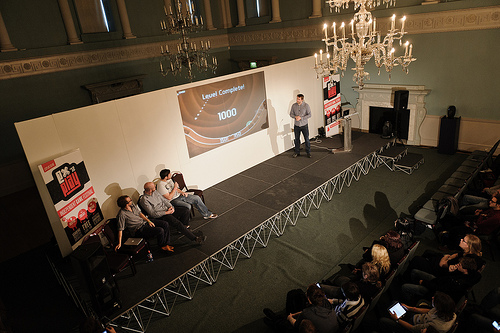Auroch Digital's Tomas Rawlings talks about the strategy of how games are being put to good use helping science and knowledge:
PCGN: Why has the Wellcome Trust taken an interest in games?
Tom: The guy who founded Wellcome, Henry Wellcome, was passionate that science was a part of human culture and that you didn't see a separation between the two. So part of Wellcome's mission, in addition to these big major challenges, is to engage with people so that they see science and culture together.
Games are a great method to talk about science because games by their nature are dynamic, they're interactive, and science is very hands on. So if you want to explain to somebody a complex system whereby as you change what's in the system the system changes as a result, games are a great way to do that because rather than just talking about it you can let the person experience it themselves.
I mean, ultimately, if you think about what a player does when they play a game they are using the scientific method, I mean they get dropped into a game on the first level, you don't know the rules of this new world, so what you have to do is trial and error to figure it out, and by trial and error you construct a set of rules in your head “If I touch this object I die, whereas if I jump over it I'm OK” and ultimately they are constructing a series of rules to help them navigate that world. And really, that's what science does. It's by trial and error, by experimentation we construct a series of rules that allow us to understand and engage with the natural world.








